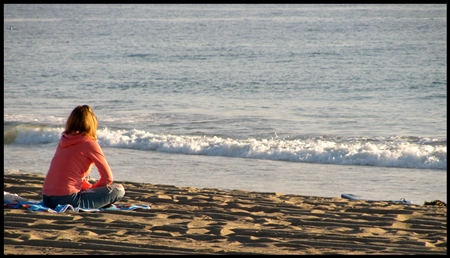 You have written proposals for your program. You are confident you will find the funding you need. But for now, you are waiting.
You have written proposals for your program. You are confident you will find the funding you need. But for now, you are waiting.
Or perhaps you are waiting on the results of your big annual event, the cash from which will carry your organization for many months.
The longer you wait, the louder you hear that voice of fear asking, “What if we don’t get the money? What will we do?”
This fear is normal. To a great extent, it is rooted in reality. Not everyone gets every grant they request. Not every event raises all the money an organization needs.
And while the experts tell you, “That’s why you need to diversify revenue streams,” that seems like a huge leap – something big to learn about, that may even feel more uncertain than waiting to hear about the results of grants or events!
If this is the boat you find yourself in, this post is for you. We asked experts in the fundraising world this question:
“While they’re waiting to hear if their grant was approved or their event was successful, what are some things people can try, to add one simple funding tool to their bag of tricks?”
Here is what those wise minds suggested:
Mary Cahalane
• Call your top ten donors, just to talk.
• Ask your board to send three personal notes to donors or interested individuals.
• Just start building relationships with people as well as institutions!
Susan Detwiler
Ask yourself, “Who else is asking for grant money from this organization?” then, “Who else funds these other organizations?” A great way to identify new potential partners / donors / grantors / collaborators. You can find the answers to both of these in Foundation Center, Guidestar, and/or Grantspace.
Dan Duncan
Start any new activity with the question, “What can we do with what we already have to get what we want?” And then start doing that thing, and think about money as a way to help do more of what you will now already be doing. It is easier to raise money to support something you are already doing successfully than to start something.
Marc Pitman
Call five previous granters to thank them for making some specific aspect of your program work.
Rebecca Henderson
Dessert parties are very successful in my part of the country, inviting friends and family to learn about the organization. Sometimes they’re presented as morning coffees or afternoon teas, as well.
Jane Garthson
When I became an ED, I found the organization so focused on what one funder would fund (65% of budget) that they had not looked more broadly at other options. I asked, “What else could we be accomplishing if we had the money? And who might fund THAT?” We got a large grant from another government department that had never been asked before.
For events, I’ve found that running outreach events – free or mostly free – is a great way to bring people into the event to generates the revenue.
As an example, my international music festival knows we need to grow local participation, mostly from younger music lovers with little disposable income, who are not likely to pay for weekend attendance at something unknown.
So I run one participatory music event annually at a specialty book store (which loves that we bring in additional crowds for book sales on a dreary Sunday in February in Toronto). Another volunteer runs an annual showcase concert in free space at a library, hosted by a special collection relevant to our music. I’ve run a family concert with songs for kids at a nearby park, outdoors. None of this costs us anything, and it helps promote the actual paid event later on.
Norman Olshansky
Create a plan for how you will keep the funder involved and informed as a stakeholder within your organization.
Pauline Urbano Hechler
1) Go see your top donors just to catch them up and say thanks.
2) Work with a mail house to do an acquisition mailing to build your donor base. Don’t expect to net anything except new donors.
3) Call smaller donors to say thank you.
Ann Vermel
As long as you have already written that proposal, look around your local business community for likely program partners and/or sponsors, and revise the basic proposal to fit a pitch for partial support from them.
If you think your general case is strong, consider turning it into a presentation for a local service organization who needs to know more about your work. Or turn it into an OpEd piece. Uou crafted that gorgeous prose; get the most you can out of it!
Donna Hicks Melton
1) List all the ways the community benefits from your program
2) List all the other groups and individuals who care about that issue
3) See what you can do together / who you can partner with
Taking a page out of Tom Ahern’s playbook, it really is about reminding people what is in it for them as members of the community, when they all come together to strengthen a community by supporting a food cupboard or crisis nursery, an arts program, etc. Then getting a number of partners that “get it,” to build momentum.
So… what is your favorite tip for fundraising while you are waiting for the grant to be approved or the event to be a success?
